- Home
- Maisey Yates
Secrets from a Happy Marriage
Secrets from a Happy Marriage Read online
New York Times bestselling author Maisey Yates’s new novel introduces the women of the Lighthouse Inn B&B. They might not have it all together, but this summer, they’ll discover that together, they might still have it all...
Rachel Henderson’s family is falling apart. Becoming a widow—especially at this age—is heartbreaking. With her teenage daughter, Emma, leaving soon for college, Rachel needs a friend—but local diner owner Adam is the last person she ever thought she’d lean on.
From the outside, her little sister, Anna, has a picture-perfect marriage. But the weight of it is suffocating her. The only way for her to breathe again comes at a high price, one she’s not so sure she can pay.
After raising two daughters on her own, their mother, Wendy, knows just how hard life can be. She’s done things she’s not proud of, things she desperately wants to keep from her girls—until keeping quiet is no longer an option.
As long-held secrets bubble up and their old lives unravel, this family will need all their strength to start again and open their hearts up to the possibility of more. But most of all, they’ll need each other...
Praise for New York Times bestselling author Maisey Yates
“[A] surefire winner not to be missed.”
—Publishers Weekly on Slow Burn Cowboy (starred review)
“This fast-paced, sensual novel will leave readers believing in the healing power of love.”
—Publishers Weekly on Down Home Cowboy
“Yates’ new Gold Valley series begins with a sassy, romantic and sexy story about two characters whose chemistry is off the charts.”
—RT Book Reviews on Smooth-Talking Cowboy (Top Pick)
“Multidimensional and genuine characters are the highlight of this alluring novel, and sensual love scenes complete it. Yates’s fans...will savor this delectable story.”
—Publishers Weekly on Unbroken Cowboy (starred review)
“Fast-paced and intensely emotional.... This is one of the most heartfelt installments in this series, and Yates’s fans will love it.”
—Publishers Weekly on Cowboy to the Core (starred review)
“Yates’s outstanding eighth Gold Valley contemporary...will delight newcomers and fans alike.... This charming and very sensual contemporary is a must for fans of passion.”
—Publishers Weekly on Cowboy Christmas Redemption (starred review)
Also available from
Maisey Yates
and HQN
Welcome to Gold Valley, Oregon, where the cowboys are tough to tame, until they meet the women who can lasso their hearts.
Smooth-Talking Cowboy
Untamed Cowboy
Good Time Cowboy
A Tall, Dark Cowboy Christmas
Unbroken Cowboy
Cowboy to the Core
Lone Wolf Cowboy
Cowboy Christmas Redemption
In Copper Ridge, Oregon, lasting love with a cowboy is only a happily-ever-after away.
Part Time Cowboy
Brokedown Cowboy
Bad News Cowboy
The Cowboy Way
One Night Charmer
Tough Luck Hero
Last Chance Rebel
Slow Burn Cowboy
Down Home Cowboy
Wild Ride Cowboy
Christmastime Cowboy
Look for more Gold Valley books coming soon!
For more books by Maisey Yates, visit www.maiseyyates.com.
Maisey Yates
Secrets from a Happy Marriage
To my mom. Whenever I showed the slightest bit of interest in something, you made sure I could try it. Not only that, you made sure I got there on time, and always with whatever I needed. From baseball, which I was awful at, to piano, flute, painting, drama and writing classes. I didn’t get here on my own. I can drive myself places now, but it’s all that driving, and listening, and supporting that you did that made me who I am. Thank you.
Contents
Chapter 1
Chapter 2
Chapter 3
Chapter 4
Chapter 5
Chapter 6
Chapter 7
Chapter 8
Chapter 9
Chapter 10
Chapter 11
Chapter 12
Chapter 13
Chapter 14
Chapter 15
Chapter 16
Chapter 17
Chapter 18
Chapter 19
Chapter 20
Chapter 21
Chapter 22
Chapter 23
Chapter 24
Chapter 25
Chapter 26
Chapter 27
Chapter 28
Chapter 29
Chapter 30
Chapter 31
Chapter 32
Chapter 33
Chapter 34
Chapter 35
Chapter 36
Chapter 37
Epilogue
Acknowledgments
From the Author
Excerpt from The Bad Boy of Redemption Ranch by Maisey Yates
1
Dear Mr. Hansen,
I am writing to accept your offer of marriage. I will arrive in Newport by train on Saturday, January 6. I have in my possession only one small bag. I have put all of the resources left to me by my late husband into the purchase of this ticket and will not have the funds to acquire a return. I pray we will make a harmonious match.
—FROM A LETTER WRITTEN BY JENNY HANSEN TO OLAF HANSEN, CHIEF LIGHTKEEPER OF THE CAPE HOPE LIGHTHOUSE, DECEMBER 20, 1899, NOW POSTED IN THE PARLOR OF THE CAPTAIN’S HOUSE AT THE LIGHTHOUSE INN, SUNSET BAY, OREGON
RACHEL
Rachel Henderson had known she would be a widow for a number of years now. Knowing that still hadn’t prepared her for the day it would happen. For watching the light that made her husband who he was drain away.
This slow unwinding of their lives from each other.
Where he would go on, and she would remain.
“I really did want to see her graduation.” His voice was weaker now, even more than it had been a few hours earlier.
He laid back his head on the stark white pillow, his eyes fluttering closed. A few months ago, when he’d started spending more time in bed than out, she’d changed the angle of it. Panting and sweating as she strained to move the king-size piece of furniture on her own. But she’d wanted him to be able to see the ocean without having to move too much.
She’d moved all the pictures into a cluster on that wall, as well—all the photographs he’d taken that they’d had framed, right in his line of sight.
The twenty short years they’d spent as husband and wife, captured in those photos. Frozen. Perfect and happy. At the center of them was a photograph with their hands all together that they’d taken when Emma was a baby.
The three of them.
Her family.
Rachel closed her eyes. “Of course. I’m not going to...pretend we didn’t want you to.”
There was no easy thing to say. She wouldn’t lie and say it was okay.
This old Queen Anne house had stood since 1894, and in those years the one constant had been change. From the age when three lightkeepers had been required to live on-site to keep the kerosene lantern lit and prevent passing ships from being dashed on the rocks.
To when times had changed and innovation had meant only one keeper and a backup were needed.
/>
To the years when bunkers had been built into the landscape during World War II, men ready to defend the country from enemies that might storm the rocky, windswept beaches.
The years when the lighthouse was automated, and the keepers had no longer been needed. When the houses had been used as dormitories and the property an extension for a university.
Then for nearly a decade when the houses and buildings on the property had been empty. Quiet.
Until Rachel’s mother had taken over and life had started again in these walls.
Change. New life. Loss of life. Laughter. Fear.
It had all existed here.
And the houses, the lighthouse itself, remained through it all.
Rachel could feel it now. As if the years were layers rather than a timeline. As if it all existed at once, here in this room.
She and Jacob were simply part of it. One row of stitches in a vast quilt.
Rachel found some comfort in that—in this moment where her life felt large and her present pain felt bigger than what she could manage.
That in the fullness of time, she was small. They were small.
But this moment, this time, was all she had. And that moment’s relief she felt fell away. Each second on the ticking clock louder, the sound of his rattling breath echoing in her.
Her husband. The only man she’d ever loved.
They’d been hand in hand, all this time. They’d found new ways to stretch a bond, commitment, over the years.
As his needs had changed, her place in his life had changed, and his in hers.
Changed, but not become less important.
She’d been a wife, and a companion, and a caregiver.
More wife than caregiver at first. But that had changed, too. Like a tide, rolling in and out.
His expression, which had been flat for the past few hours, changed. A small smile touched his lips, and he closed his eyes. For a moment she knew a kick of terror. That this might be it. She knew that it was. But just a few more minutes. That was all she wanted.
She had accepted that she would be a widow. But now she was at the stage where she was happy to delay it five more minutes.
Not that anyone asked her about timing.
“Remember when Emma was born?” His voice was thin.
She looked at him; his eyes were still closed. “I remember.”
It was like he could read her thoughts, and honestly, she wouldn’t be surprised if he could.
“That was one of the happiest days of my life.” He opened his eyes. They looked glassy now, distant, like they were seeing something else. “The other one was when I married you.”
A tear slid down Rachel’s cheek. Because her husband was a good man. And forty was too young to die. Thirty-nine was too young to be widowed.
Being so aware of the history all around, of the ages and generations of time contained in these walls, all the people who had walked across these wooden floors, these years felt all that much shorter.
Far, far too short.
Her eyes skimmed across the orange-and-white bottles of prescription medication that cluttered the top of the nightstand, to the photo of their wedding day. When they’d been eighteen and blissful, totally unprepared for what lay ahead.
Meningitis, which was terrifying on its own. But she’d had no idea—they’d had no idea—of the side effects that were possible.
For that first seizure that would come only a year later. Followed by brain bleeds. Brain surgeries. Endless clotting complications.
Finally, this.
Cancer.
How had this man who had been through so much, who had already had a rare illness with rare side effects—? It didn’t make sense.
He looked so different now than he had before. Than he had on their wedding day, or when Emma was born.
For every year she’d aged, she’d watched him age two. The ravages of illness were cruel. It had cost him to keep on living all this time, and he’d done it. Brilliantly.
She knew that people felt sorry for them. For him. For her.
As if loving him had been a burden. As if his love hadn’t been sufficient to carry them through this moment.
He had never been a burden.
The love between them had only ever been a gift.
And it was so hard to give up such a beautiful gift.
“I like these pictures,” he said. “But you should have hung up the ones I took of you.”
Her heart went tight. “The ones you took of me in my underwear? I was not going to hang those on the wall.”
His eyes were open again. “But I’d have enjoyed staring at them. I like the ocean but...it’s nothing compared to you.”
She couldn’t speak. Not around the lump in her throat.
She lay down beside him, gripping the edge of the blue-and-white quilt that had been pushed down to the foot of the bed. She pressed her forehead to his shoulder. “Are you flirting with me?”
“Yes.” His eyes fluttered closed again and she smiled.
She looked at him, and his familiar profile. And she watched as his breathing became more and more shallow. She didn’t want to close her eyes, because she didn’t want to miss one more rise-and-fall of his chest.
“I love you,” she whispered, the lump in her throat going sharp, painful.
He didn’t answer.
She started to get tired, the weight of the moment overwhelming her. She fought closing her eyes for a moment, fought sleep. But then some part of her whispered in her ear.
That falling asleep wasn’t a bad thing.
That she should enjoy the chance to go to sleep with her husband of twenty years one last time.
She did.
And when she opened her eyes an hour later, his chest was still.
EMMA
Emma stopped at the mailbox at the end of the private drive that led to the Lighthouse Inn at Cape Hope, her family home and business. Standing there wasn’t going to make a letter appear; she knew that.
She’d had a few acceptances already, but not the one. Not the one that she was waiting for. Not the one that she wanted.
The one that she needed.
It was insane, to think that the next four years of her life, where she lived, what kind of education she would get, was decided by this. And that would decide...everything else. The friends she would have, whom she would meet.
All of it would be decided by this letter.
And she didn’t know what she was going to do if she couldn’t go to Boston.
So that was fine. She was just standing there waiting for a life-ending piece of mail. Acceptance or rejection into the Boston University marine-biology program.
She jerked open the box and looked inside. There were two letters. She couldn’t see to whom either was addressed. She pulled them out and saw that the first one was junk.
And the second...
It was it.
Tension unwound inside her, all the bones in her body dissolving. She was afraid she was going to collapse in the driveway.
She couldn’t open it out here. She had to go—get inside and light a candle or do a ritual or something.
She took a couple of breaths and gathered herself. The end of the driveway was shrouded by trees, and only a weak sliver of afternoon light managed to break through. But the trees also blocked the wind coming off the sea.
In January, that wind could be bitter, slicing through jackets and gloves to chill you to the bone.
She got back into her car, a late-model Peugeot, which her father had accused of being impractical, as well as an extension of the local landfill, based on the amount of junk—what he perceived to be junk—that Emma had inside it.
She had made the case for it being necessary. A mobile extension of her bedroom, not the landfill, tha
nk you very much.
He’d laughed at that and hadn’t ever mentioned the state of her car again.
She would miss her dad when she left for school.
And he’d still be here for that. She had to believe it.
She drove too quickly down the drive, and as she rounded the corner, the first thing she could see was the guesthouse, white with a red roof and a picket fence around the outside. The Captain’s House. And next to it was Emma’s house, the Lightkeeper’s House, they now called it. White and red, just like the first, but this one was a duplex, divided in half to accommodate the assistant lightkeepers and their families, back in the late 1800s.
She parked her car and went through the white gate, walking on the path that led around to the front of the house, to the vast porch that the duplexes shared, with one door on either end of the porch.
The sea roared like a monster, booming below, the waves all white foam today as they collided with the large, jagged rocks before frothing into the small cove of coarse, rocky sand, encircled by dark green mountains that helped to shield beachgoers from the worst of the wind.
This view had been there, unchanging, all of her life.
Nearly every morning, she’d woken up, come out to this porch and looked at the ocean.
The idea of leaving it suddenly made her more sad than excited. What if the letter did say yes, and she moved across the country?
For the past two years she’d built up fantasies of a life at that school. She’d built a relationship with the lead researcher at an aquarium there, who assured her she’d have a place to work and get hands-on experience should she be accepted to the school.
Her best friend, Catherine, had applied there, too.
The place, the program...
There wasn’t anywhere better.
Oh...what if her letter said no?
She took a breath of the briny, salt-touched air and smiled. She walked over to the wooden door and looked up at the window, the pale sunlight hitting the glass squares and lighting up the colors.
Purple and green and gold.
Then she pushed open the door and stopped.

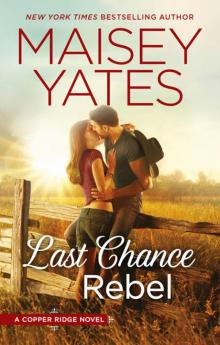 Last Chance Rebel (Copper Ridge #6)
Last Chance Rebel (Copper Ridge #6)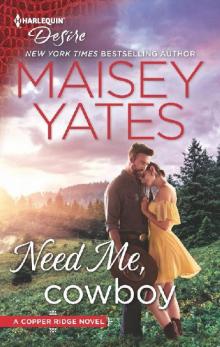 Need Me, Cowboy (Copper Ridge Book 2653)
Need Me, Cowboy (Copper Ridge Book 2653)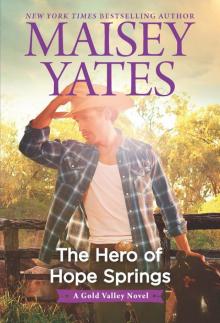 The Hero of Hope Springs
The Hero of Hope Springs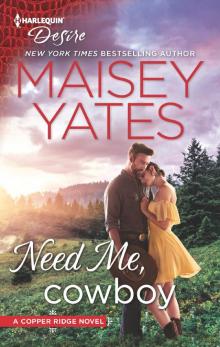 Need Me, Cowboy
Need Me, Cowboy Rancher's Wild Secret & Hold Me, Cowboy (Gold Valley Vineyards Book 1)
Rancher's Wild Secret & Hold Me, Cowboy (Gold Valley Vineyards Book 1) One Night Charmer: Hometown Heartbreaker Bonus (Copper Ridge Novels)
One Night Charmer: Hometown Heartbreaker Bonus (Copper Ridge Novels) Claiming the Rancher's Heir
Claiming the Rancher's Heir Cowboy Christmas Redemption
Cowboy Christmas Redemption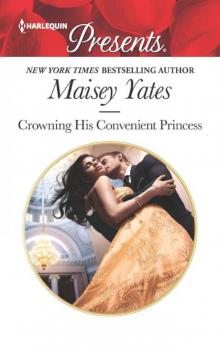 Crowning His Convenient Princess (Once Upon A Seduction... Book 4)
Crowning His Convenient Princess (Once Upon A Seduction... Book 4) His Majesty's Forbidden Temptation (Mills & Boon Modern)
His Majesty's Forbidden Temptation (Mills & Boon Modern)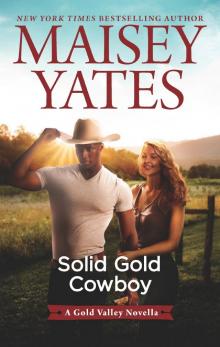 Solid Gold Cowboy
Solid Gold Cowboy His Majesty's Forbidden Temptation
His Majesty's Forbidden Temptation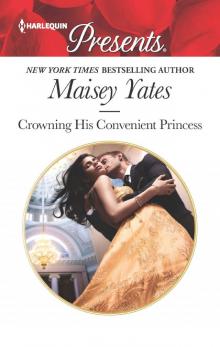 Crowning His Convenient Princess
Crowning His Convenient Princess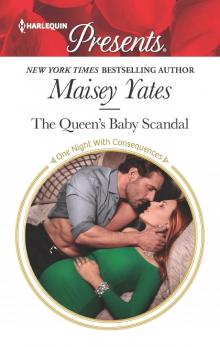 The Queen's Baby Scandal
The Queen's Baby Scandal Harlequin Desire January 2021--Box Set 1 of 2
Harlequin Desire January 2021--Box Set 1 of 2 Lone Wolf Cowboy
Lone Wolf Cowboy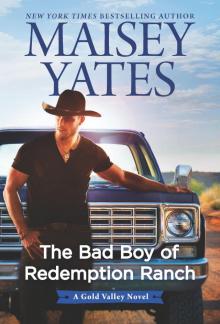 The Bad Boy of Redemption Ranch
The Bad Boy of Redemption Ranch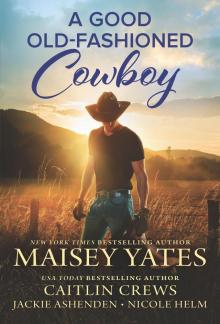 A Good Old-Fashioned Cowboy
A Good Old-Fashioned Cowboy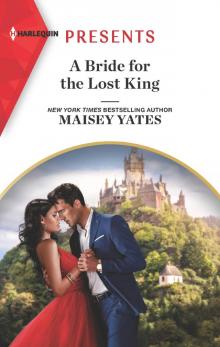 A Bride for the Lost King
A Bride for the Lost King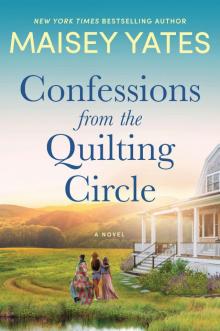 Confessions from the Quilting Circle
Confessions from the Quilting Circle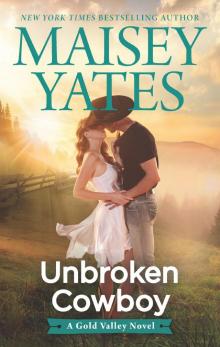 Unbroken Cowboy
Unbroken Cowboy Rancher's Christmas Storm--A Western snowbound romance
Rancher's Christmas Storm--A Western snowbound romance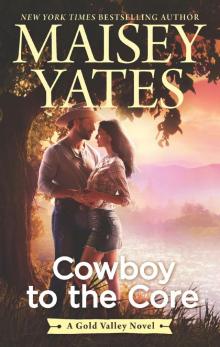 Cowboy to the Core
Cowboy to the Core His Pregnant Princess
His Pregnant Princess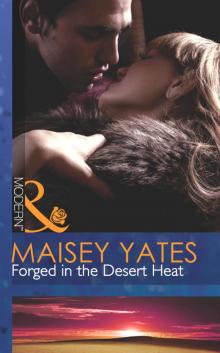 Forged in the Desert Heat
Forged in the Desert Heat His Forbidden Pregnant Princess (Mills & Boon Modern) (Conveniently Wed!, Book 21)
His Forbidden Pregnant Princess (Mills & Boon Modern) (Conveniently Wed!, Book 21)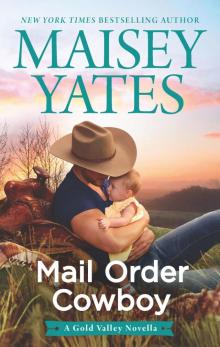 Mail Order Cowboy
Mail Order Cowboy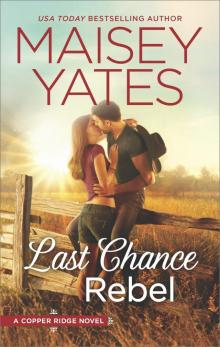 Last Chance Rebel
Last Chance Rebel The Rancher's Wager
The Rancher's Wager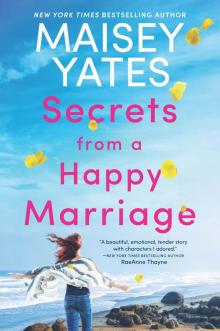 Secrets from a Happy Marriage
Secrets from a Happy Marriage The Last Christmas Cowboy
The Last Christmas Cowboy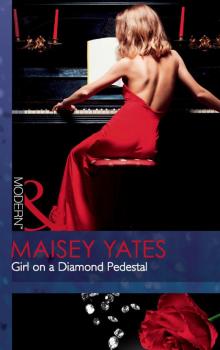 Girl on a Diamond Pedestal
Girl on a Diamond Pedestal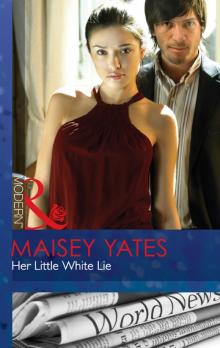 Her Little White Lie
Her Little White Lie The Couple who Fooled the World
The Couple who Fooled the World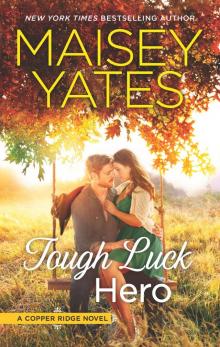 Tough Luck Hero
Tough Luck Hero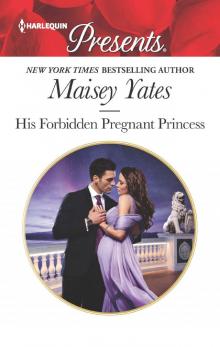 His Forbidden Pregnant Princess
His Forbidden Pregnant Princess TO DEFY A SHEIKH
TO DEFY A SHEIKH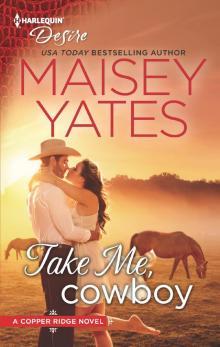 Take Me, Cowboy
Take Me, Cowboy The Inherited Bride
The Inherited Bride Marriage Made on Paper
Marriage Made on Paper His Virgin Acquisition
His Virgin Acquisition One Night to Risk It All
One Night to Risk It All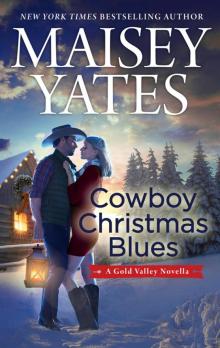 Cowboy Christmas Blues
Cowboy Christmas Blues The Billionaire's Intern: Logan Black (Forbidden Book 1)
The Billionaire's Intern: Logan Black (Forbidden Book 1) Strip You Bare
Strip You Bare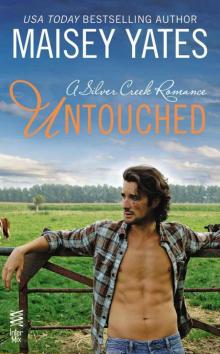 Untouched
Untouched The Petrov Proposal
The Petrov Proposal Sheikh's Desert Duty
Sheikh's Desert Duty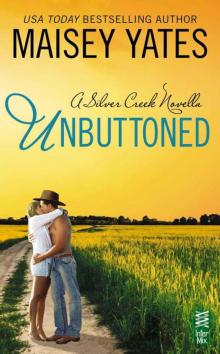 Unbuttoned
Unbuttoned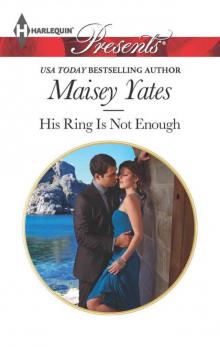 His Ring Is Not Enough
His Ring Is Not Enough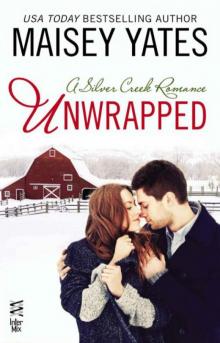 Unwrapped
Unwrapped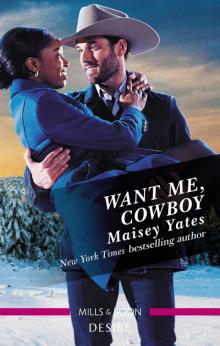 Want Me, Cowboy
Want Me, Cowboy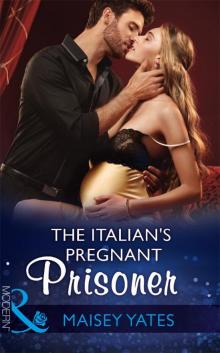 The Italian's Pregnant Prisoner
The Italian's Pregnant Prisoner A Royal World Apart
A Royal World Apart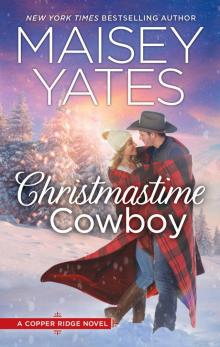 Christmastime Cowboy
Christmastime Cowboy Pretender to the Throne
Pretender to the Throne Rekindled
Rekindled The Queen's New Year Secret
The Queen's New Year Secret Down Home Cowboy
Down Home Cowboy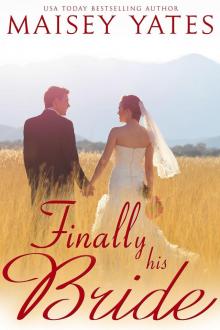 Finally His Bride (Montana Born Brides Series Book 4)
Finally His Bride (Montana Born Brides Series Book 4) Avenge Me
Avenge Me Crazy, Stupid Sex
Crazy, Stupid Sex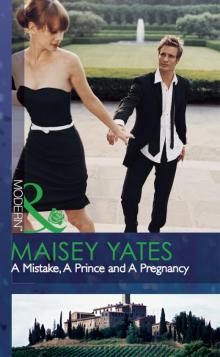 A Mistake, A Prince and A Pregnancy
A Mistake, A Prince and A Pregnancy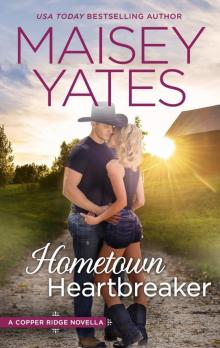 Hometown Heartbreaker
Hometown Heartbreaker A Hunger for the Forbidden
A Hunger for the Forbidden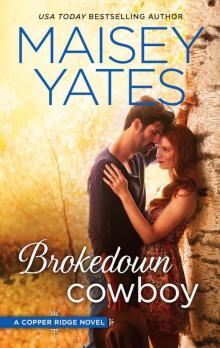 Brokedown Cowboy
Brokedown Cowboy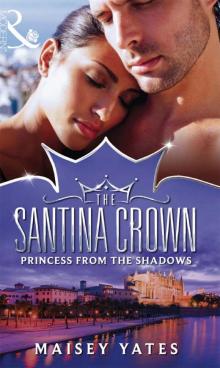 Princess from the Shadows Maisey Yates
Princess from the Shadows Maisey Yates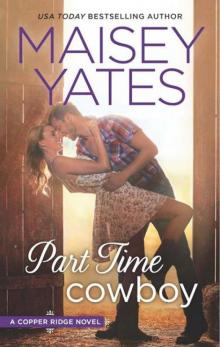 Part Time Cowboy (Copper Ridge Book 1)
Part Time Cowboy (Copper Ridge Book 1)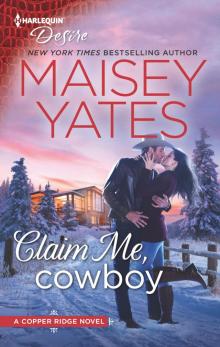 Claim Me, Cowboy
Claim Me, Cowboy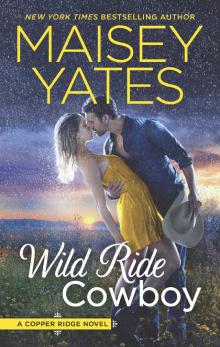 Wild Ride Cowboy
Wild Ride Cowboy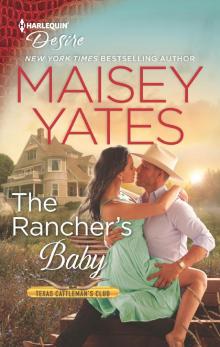 The Rancher's Baby
The Rancher's Baby The Prince's Captive Virgin
The Prince's Captive Virgin Seduce Me, Cowboy (Mills & Boon Desire) (Copper Ridge)
Seduce Me, Cowboy (Mills & Boon Desire) (Copper Ridge) Untamed Cowboy
Untamed Cowboy Smooth-Talking Cowboy
Smooth-Talking Cowboy The Billionaire's Marriage Deal
The Billionaire's Marriage Deal The Life She Left Behind
The Life She Left Behind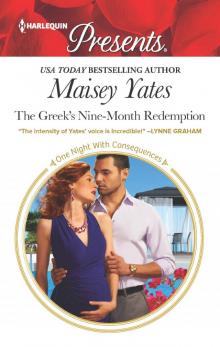 The Greek's Nine-Month Redemption
The Greek's Nine-Month Redemption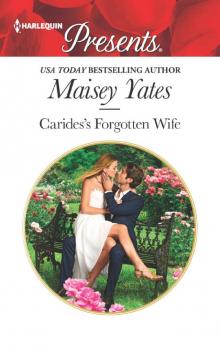 Carides's Forgotten Wife
Carides's Forgotten Wife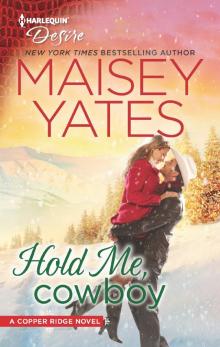 Hold Me, Cowboy
Hold Me, Cowboy The Spaniard's Pregnant Bride
The Spaniard's Pregnant Bride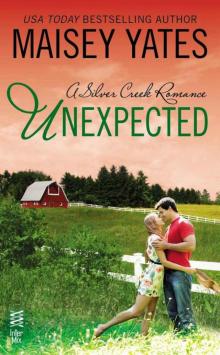 Unexpected (A Silver Creek Romance)
Unexpected (A Silver Creek Romance) The Prince and the PA
The Prince and the PA A Christmas Vow of Seduction
A Christmas Vow of Seduction The Last Di Sione Claims His Prize
The Last Di Sione Claims His Prize Snowed in with the Cowboy
Snowed in with the Cowboy Fifth Avenue Box Set: Take MeAvenge MeScandalize MeExpose Me
Fifth Avenue Box Set: Take MeAvenge MeScandalize MeExpose Me Hard Riding Cowboy
Hard Riding Cowboy Bound to the Warrior King
Bound to the Warrior King Heir to a Dark Inheritance
Heir to a Dark Inheritance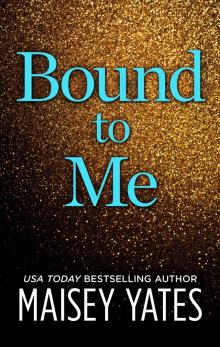 Bound to Me
Bound to Me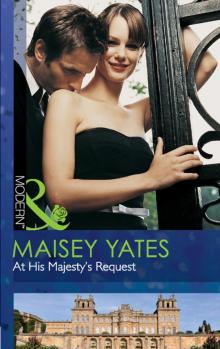 At His Majesty's Request
At His Majesty's Request The Italian's Pregnant Virgin
The Italian's Pregnant Virgin Slow Burn Cowboy
Slow Burn Cowboy A Game of Vows
A Game of Vows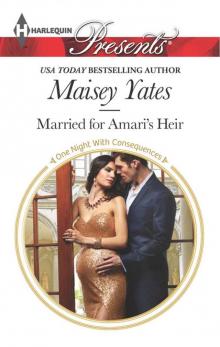 Married for Amari's Heir
Married for Amari's Heir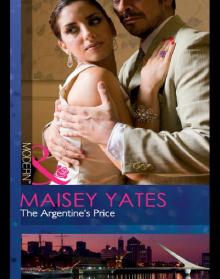 The Argentine's Price
The Argentine's Price Bad News Cowboy
Bad News Cowboy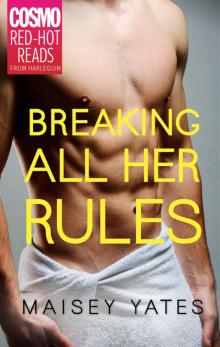 Breaking All Her Rules
Breaking All Her Rules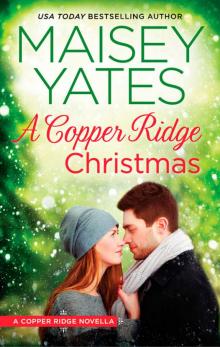 A Copper Ridge Christmas
A Copper Ridge Christmas Hajar's Hidden Legacy
Hajar's Hidden Legacy One Night Charmer
One Night Charmer One Night in Paradise
One Night in Paradise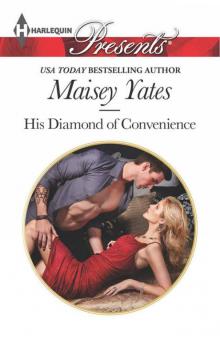 His Diamond of Convenience
His Diamond of Convenience